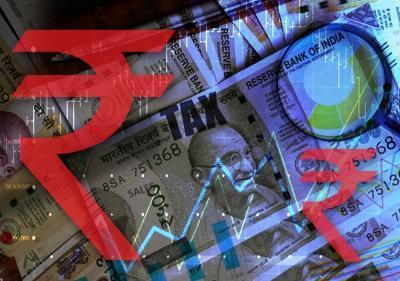
The Finance Bill 2023-24 which was passed in Lok Sabha through voice vote on Friday, has as many as 75 amendments, some key ones include a hike in securities transaction tax (STT) on options by 23.5 per cent and futures by 25 per cent.
This will lead to those trading in futures and options (F&O) paying higher STT.
In a way, the move is likely to discourage F&O traders, as government aims to tax them more since turnover is high in such transactions.
Also the Finance Bill has effected an amendment, stripping debt mutual funds of long term benefits.
According to the amendment, debt mutual funds have been stripped of the long-term tax benefit, if they invest less than 35 per cent of their assets in equities.
Such mutual funds will attract short-term capital gains tax.
This brings the taxation treatment for debt funds on a par with any other bank fixed deposits, where the capital gains are added to the investora�s income and taxed at his or her slab rates.
The Finance Bill has also proposed to tax distribution from business trust which as income from other sources at applicable rate. This is now proposed to be treated as return of capital ie reduction from cost of acquisition, till the cost at which the unit was issued.
However, any amount in excess of the issue price would be taxable as income. Thus, the change would benefit the unitholders vis-a-vis the earlier proposal.
One relaxation provided in the union budget for 2023-24 was that income upto Rs 7 lakhs for assesses in the new regime would be non-taxable through the rebate route.
However there was an anomaly that incase the income exceeded Rs 7 lakhs, then the additional tax would be more than the income itself.
For example, in case the income of a person is Rs 7,01,000 then the tax would be Rs 25,100. Hence for an additional income of Rs 1,000, there would be an additional tax of Rs 25,100.
This has been rectified to provide marginal relief to provide that the additional tax should not be more than the income itself, which is Rs 1,000 additional tax in this case.
The amendment will encourage more and more people to opt for new tax regime.
Also MUDRA loans for micro units or enterprises set up under Joint Liability Group (JLG) framework (individually or jointly) are now eligible for guarantee coverage under Credit Guarantee Fund for Micro Units (CGFMU).
The Finance Bill has amended Section 109 of The CGST Act 2017 to facilitate formation of GST Tribunals.
The Government has also increased the withholding tax rate on royalties and fee for technical services paid to non-residents from 10 per cent to 20 per cent under domestic tax law.
Tax treaty benefits will become more critical now to avail a reduced withholding tax rate. Foreign entities will need to evaluate their commercial substance to be able to claim such treaty benefits. This may also increase the cost of import of technology in cases where Indian companies are grossing up withholding taxes and treaty benefits are not available.
Taking note of the representations made by the gaming industry, the government had proposed to bring the latest TDS provisions, applicable to online gaming, into effect from April 1.
Further, the TDS on the online gaming was also proposed to be deducted at the double rate, in case of non-compliance in return filing by the concerned deductee, where the TDS amount in the past year was more than 50,000.
These amendments have now been accepted. This may require the gaming operators to seek an undertaking and necessary proofs from the users, to ensure proper compliance with this provision.
Vivek Jalan, partner, Tax Connect Advisory, a multi-disciplinary tax consultancy firm, while reacting to amendments leading to setting up of GST tribunals, said: “The most welcome step is the move to amend Section 109 of The CGST Act 2017 and lay the foundation of the formation of GST Tribunals, a long overdue measure to get justice for the GST Taxpayers accross the country.”
The move was stuck in a deadlock between states and Centre wherein the states required independent GSTAT at state level and Centre was demanding a National Tribunal at the Centre with co-ordinate branches, he explained.
“An intermediate solution has been reached wherein there would be a National Bench with co-ordinate benches in states and there would be a mix of Centre and states members – both judicial and technical. However since hearing would only be done by one or two members, still the dynamics for dispensation of justice needs to be worked out
“Nonetheless taxpayers would heave a sigh of relief as already tens of thousands of matters are lying pending appeal before the GSTAT since its not been formed. To add salt to the injury various state SGST departments have initiated recovery proceedings in these matters, a move completely unwarranted and un-precedented,” Jalan said.
Naveen Aggarwal, Partner, Tax, KPMG in India, said: “Two key changes proposed in the Finance Bill are in relation to taxation of business trusts. The government has allowed the benefit of cost against the return of capital component for the unit holders and the tax exemption has been extended to other income arising for sovereign wealth funds and pension funds as unit holders of business trusts.”
The changes, he said, are in line with the expectations and provide clarity and certainty of tax policy vis-a-vis business trusts.
The investor community has welcomed the change. It also underscores the governments focus for investment in the infrastructure sector in the country and attracting the patient global capital in this sector.











